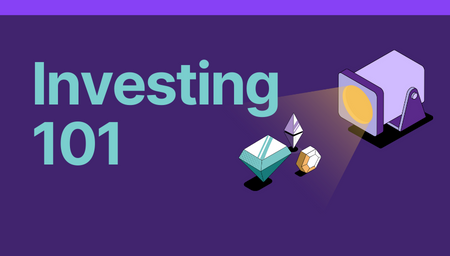What are the different types of asset classes?

As an investor, it's important to understand the different types of assets you can invest in. Different asset classes have different risk and return characteristics, which can help you create a diversified portfolio that meets your financial goals.
Before we dive in deeper, let's explain what an asset class is.
What Is an Asset Class?
Have you ever noticed a flock of birds flying in the sky? Birds of the same species form a group and fly in the same direction. An asset class is pretty much the same. It is a group of investments that have similar traits and are subject to the same laws and regulations. These comparable securities often behave in a similar way. They can be both tangible and intangible instruments. Investors can buy and sell them to generate revenue, on either a short or long-term basis.
Types of Asset Classes
Let’s take a closer look at the different types of asset classes.
Equities
Equities, or stocks, represent ownership in a company. When you buy a share of a company, you become a part owner. But why do companies sell equities of ownership to the public? It's because they need money for operations and expansion. When you buy stocks of a company, then the value of your investment is determined by the performance of the company and the demand for its stock.
There are two ways through which you can make money by investing in equities:
-
If the company pays a dividend
-
If you sell the shares for more than what you paid for them
Over the long term, equities tend to have higher returns than other asset classes.. But remember that markets are unpredictable. The value of your investments may fluctuate with changes in share prices. There is also a chance that the company you have invested in could go bust.
Fixed Income
This is one of the oldest investment options and is also very popular among Indians.
As the name suggests, fixed-income investments are those that give the investor a fixed income. Here, you lend money to an entity for a specific period of time and in return, you receive returns (interest) until the maturity date, or the day you get your money back.Fixed-income securities, such as bonds, represent debt issued by companies or governments. These instruments tend to offer lower returns than equities, but they also carry less risk.
Commodities
In addition to equities and fixed-income instruments, commodities are another prominent asset class. Commodities can be defined as goods that can be transformed into other goods and services. For example, metals, crude oil, etc. They are crucial to the functioning of an economy and could therefore be a good hedge against inflation. Their prices can be influenced by a variety of factors such as supply and demand, geopolitical events, weather patterns and technological advancements. You can invest in commodities either directly or indirectly. The direct method is to trade in a physical commodity on various commodity exchanges around the world and sell it at a profit in the future. Indirectly, you can buy shares of the companies that make them.
Real Estate
Real estate is a type of asset class that refers to property. This includes land and buildings. Real estate investments can take many forms, from buying a rental property to investing in a Real Estate Investment Trust (REIT). In return, it can provide a variety of benefits, such as rental income, capital appreciation and tax advantages. Real estate can be categorised into various sub-classes based on its use, such as residential, commercial, industrial and agricultural. Each sub-class has its own set of characteristics and risk profile and investors may choose to invest in one or more of these sub-classes depending on their investment objectives and risk tolerance.
Cash and Cash Equivalents
Cash and cash equivalents are an asset class that includes savings accounts, money market funds and short-term government bonds.They are low-risk investments that are highly liquid.This means that they can be easily converted into cash without any significant loss of value. While they don't offer much in the way of returns, they can be useful for holding funds that you may need to access quickly. They are typically used by individuals and businesses to meet their short-term liquidity needs. Examples of cash equivalents include money market funds, treasury bills,etc. These instruments are highly liquid, have low risk and provide a low return. They are considered to be very safe investments because they are backed by the full faith and credit of the issuing government or financial institution.
Remember that each asset class has its own level of risk and return. Their performance also varies with changing environments. Therefore, when choosing an asset class to invest in, keep your investment goals and strategy in mind.
We hope this helps you on your investment journey. Share your views on these asset classes in the comments section below.